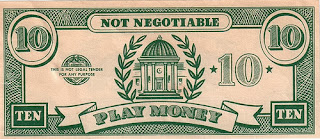In the early days, the translators took turns sitting at the desk with the main telephone line at the entrance to the building. We called it our lobby, but it was barely big enough for a welcome mat for those entering to wipe the snow off their shoes. Phone service in Moldova was far from what we were used to. There were only a few lines into the embassy and each was a separate line, not connected to a switchboard. Since the phone at the lobby desk was the number advertised for the embassy, someone had to be there to answer each call. When they did, if the call needed to be taken by someone else, one translator had to stay on the line talking to be sure the line wasn't cut off (we were certain someone was listening and if there was silence, they assumed one of the parties had hung up). Another person had to find the person who needed to talk with the caller.
The translator who answered the phone also greeted anyone who came to the door. One thing was certain. We could never be sure who would come through the door.
 |
Image of play money by HA! Designs - artbyheather,
via Flickr.com |
One day, for example, a man came in with a stack of paper. He wanted to know what the paper was worth. Alexander, also known as Z-man, was on duty that day, so he asked me. The paper was play money, Interplanetary Space Dollars. I told Z-man the papers could be purchased in a toy store for a few dollars. Z-man went back to the desk, but a few minutes later he came back. He asked again, this time explaining that the man who brought them in was close to tears. He told Z-man he had sold his house for 10,000 of these dollars, but when he brought them to the bank, they wouldn't accept them. He tried to go back to the person who bought the house, but they had already resold it. We were his last hope that the papers he had were worth something. All we could suggest was that he go to the police.
 |
Note the location of Moldova, tucked under Ukraine
in this map. Volgograd is just west of Kazakhstan, nearly
as far east of Moldova as Moldova is east of Brussels
which is where our shipments originated in Europe - the
reason for the Moldovan speed dialing that day. |
Getting telephone calls through was difficult. We solved the problem through something we called Moldovan speed dialing. One of the translators would repeatedly dial the number until it went through. It could take up to 30 minutes of trying. One afternoon, I was on the line in my office, after having had a translator speed dial to get through, talking with someone in the office in Washington that had shipped our supply orders to Volgograd because someone thought that was on the way to Moldova when Natalya came to tell me there was someone at the door who wanted to talk with the ambassador. One of the Americans had to get the message to the ambassador because she worked in the vault. I waved Natalya away because I wasn't done with my conversation.
Twice more one of the translators came to my office to try to get me to come to the lobby. Twice more I waved them off. The fourth time, instead of just trying to get my attention, they wrote a note and held it up until they were sure I had read it. The note said a man had just stabbed himself because we wouldn't get the ambassador from her office to see him. I explained to the guy in Washington that I had to hang up because we had to deal with a stabbing. The knife the guy used wasn't all that sharp so he didn't do any real injury to himself, but he got our attention.
 |
| 1902 $20.00 National bank note |
Another visitor arrived with currency he wanted us to check out for him. It was a $10 bill that was much larger than any I had seen before, from a bank in Wisconsin, dated 1905. The first person the translators asked was Alex, but since he had been an American citizen for less than three months at that point, he brought it to me. The bill wasn't in good shape. One of the corners was missing and it was well-worn. I thought it might be worth more than face value if it was in good shape, but in the shape it was in, I didn't think it was worth much beyond curiosity. Alex gave the guy a new $10 bill in exchange.
I learned later that the bill was a national bank note. Between 1863 and 1935 all 50 states and even Puerto Rico issued national bank notes. Any bank that had a national charter had the option of depositing bonds with the federal government. The bonds would then act as collateral for the bank to issue its own bank notes with the bank's name, town, and officer's signatures featured on the face of the note. The money was printed in Washington, D.C. at the Bureau of Engraving and Printing. This money was good all across the country and is still legal tender today. More than 12,000 national banks issued bank notes. National bank notes are very difficult to value, although I did find a reference once that indicated the $10.00 national bank note that Alex traded for a crisp new $10.00 might have been worth as much as $10.35, if it had been in perfect condition. That bank in Wisconsin must have printed up a lot of those bills.



No comments:
Post a Comment